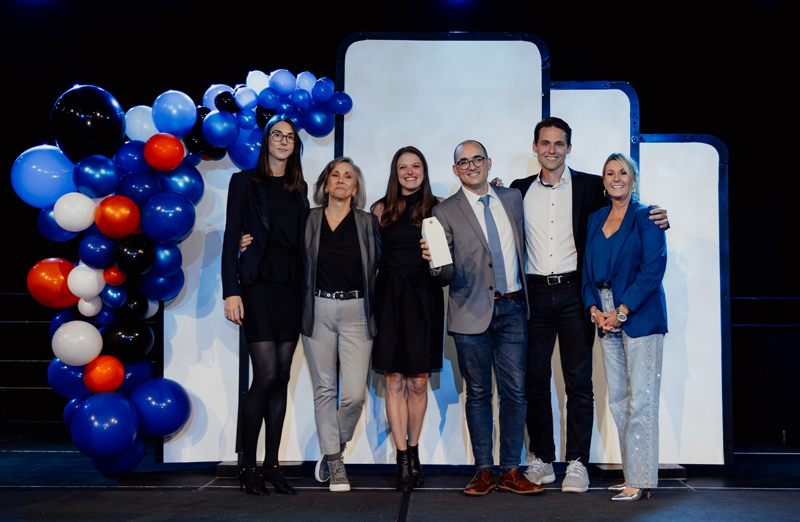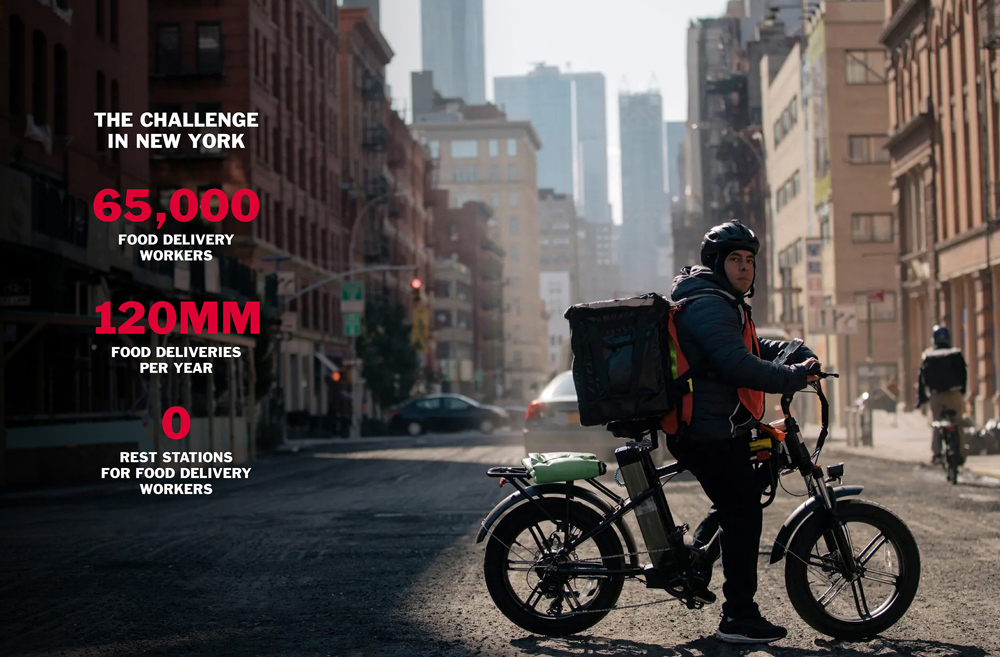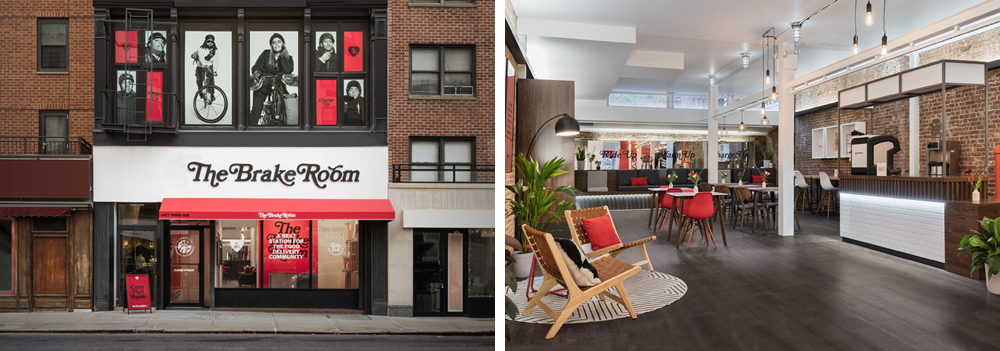Account Login
Don't have an account? Create One

In the world of marketing and advertising, professional agencies and the creative people who work there can hit up against burnout, a churn of tasks for less-than-innovative campaigns, or good campaigns sadly struggling for attention. The best work—even in the dead of winter—comes from firms where there is a continual hunt for new wells of creative energy. Speaking to Atlantic Business Magazine, several industry representatives noted they are often inspired by great work produced both within the region and around the world.
“You always have a few of your favourites at the end of the year,” said Wunder creative agency co-founder Stephen Flynn, based in Halifax, who agreed to share some of his picks from the last few years.
Flynn makes it a point to check in on the different awards programs internationally, as well as various industry trade magazines and annual publications. He keeps an eye out for work that finds a way to stand out and ideas that remain true to a brand.
One campaign that’s stood out for him came out of New Zealand and was called “Phone it in.” New Zealand’s Colenso BBDO was working for service provider Skinny Mobile, a company pitching itself as having lower cost phone service.
“They took a lower cost approach in their advertising … they just kind of printed out radio scripts and plastered them around the city and said call this phone number if you want to read a radio ad,” Flynn explained.
Seeing radio scripts for mobile phone services, people did stop. They did call in and they did record themselves reading the scripts.
“They had thousands of people calling,” he said, with a laugh; with the recordings used on air.
“Radio ads have been around for decades and if someone can still, to this day, flip it on its head or do something different like this, it always gets me excited and almost makes you feel a bit hopeful yourself for uncovering big ideas and not feel like everything’s been done,” Flynn said.
At the end of the day, Skinny Mobile claimed the company enjoyed not just the interaction but also a more than 30% increase in sign-ups, with at least some of those rooted in the campaign.
Engagement with consumers, with people, is always a challenge. Having someone hear something, see a pop-up or a billboard, read a magazine ad or watch a video is a long way from them taking a particular action. That’s why advertising that leads to action—and not just immediate reactions—is so notable.
“Their company was all about trying to get you to get a nice refurbished phone that somebody is not using anymore and kind of transition people that way,”
—Stephen Flynn, co-founder of Wunder creative agency
Another campaign Flynn thought might inspire others came from a partnership between a company called Back Market and an agency named Marcel, based in Paris, France. Back Market is an ecommerce platform with an international presence, selling refurbished electronics, including phones.
“Their company was all about trying to get you to get a nice refurbished phone that somebody is not using anymore and kind of transition people that way,” he said.
“Hack Market” was the name placed on a guerilla-style marketing campaign whereby, on Earth Day in 2022, the company used Apple’s Airdrop feature—allowing short-range wireless communication and transfer of files—to connect with customers shopping at Apple Stores in Paris, Berlin and London. While browsing the new Apple display devices, customers received a pop up, asking if they would accept an Airdrop from Back Market. They would then receive what, as reported at the time, were messages including: “The iPhone you love without the carbon footprint you hate. Switch to refurbished,” with a link to the Back Market site, with a refurbished model of what they were looking at. It was said about 4,000 messages were successfully sent.
Cheeky? Absolutely. But Flynn said it was “a clever way” to get in front of people, specifically the people who might most be interested, and to get attention in a competitive market.
Getting attention in a sea of products and ideas is one of the main challenges. Agencies work to develop a firm understanding of the marketplace, of tools and platforms, where ads will land and if people will care or are “just waiting to smash the skip ad button.”
It’s a more difficult thing than people may first think, Flynn suggested, pointing out constant changes in law that may affect marketers and advertisements in both placement and content. It’s an area he’ll be monitoring through the year ahead, suggesting things like the Meta block against sharing of Canadian news has had a ripple effect in advertising.
On one hand, as an advertiser, you can see ad blocks and splintering audiences and be left wondering where best to go with an idea. On the other hand, you might chase new opportunities for increasingly targeted work. But mainly, Flynn said, he has a rule of thumb he sticks to for everyone working with Wunder: “Stay true to just one thing: doing interesting work.”

Medium and method
While Wunder doesn’t promise specific percentage increases in the number of views on an ad, or platform specific micro measurements, the agency has landed consideration attention for its work. In 2023, they won Best of Show at the ICE Awards, an awards program recognizing the best advertising and creative marketing in Atlantic Canada.
Wunder won for The Doorbell, a campaign for United Way Halifax, a client Flynn said the firm has a good relationship with and didn’t shy from the initial pitch for less-than-polished video.
“We realized that we didn’t have the budget for a big production…,” Flynn said, explaining what he knew was available for the campaign was a lot of in-kind placement for a short video ad through the holidays.
The company went looking for an idea that wouldn’t cost the charity at the end of the day a lot in production. Wunder spent a lot of time on the creative approach.
“What is a unique perspective or point of view we could tell the story of homelessness from?” Flynn asked.
The Doorbell video, part of an award-winning campaign for United Way developed by Nova Scotia-based Wunder in late 2022. The campaign stood out given the medium, with the use of doorbell cameras in a natural setting.
“It was the realization homes actually have their own point of view these days with Ring and Nest, doorbell cameras, they all have perspectives looking out onto the world.”
The campaign video ended up making use of doorbell cameras in a natural setting, showing warm exchanges and doorstep greetings, and ending on a view Flynn agreed hits just a little bit harder because of the medium used—feeling more personal, like a glimpse into private life.
It stood out in broadcast whenever the greyer and occasionally unfocused images landed back-to-back with the shiniest, highest-definition ads of others.
“And that’s what we kind of try to do in general, is just find a way to stand out. And it worked out within the confines we had in terms of confines of budget,” he said.
The campaign actually ran at the end of 2022 and so feels a little distant at this point, versus some more recent work, Flynn said, offering the example of The Pie, a follow up with United Way airing at the end of 2023.
… the discussion around use of AI has shifted over time from predominantly paranoia and talk of risk of job losses to its potential for new creative tools.
—Mark Tungate, editorial director of the Epica Awards
“The big overall story last year was really AI. That was what everyone was talking about. It was the big buzz with all the agencies. Certainly when you went to Cannes … AI was on everybody’s lips,” said Mark Tungate, editorial director of the Epica Awards, being the international creative awards judged by journalists.
Based in France, Tungate also writes about marketing and advertising for outlets including AdForum. He said the discussion around use of AI has shifted over time from predominantly paranoia and talk of risk of job losses to its potential for new creative tools.
As an example, concept art needed for an initial pitch might be produced with something like Midjourney rather quickly, leaving more time for the creative team member to focus on other things, including final products.
Tungate said independent agency Rethink, with offices in Vancouver, Toronto and Montreal, was “ahead of the curve” winning the Epica Awards 2021 digital grand prix with a piece for Heinz, working with AI.
Realistically, AI tools are now mainstream, and increasingly known and understood by consumers. That’s led to new approaches, with some firms intentionally putting in more effort for a more “analog” approach, as part of their effort to stand out.
Epica’s film grand prix was taken this year by “Train of Memories,” a campaign in Japan by agency Six Tokyo for Sotetsu. The campaign film features a father and daughter pair on a Sotetsu train. The camera steadily pulls back, through the train car, as the viewer sees the pair again and again, steadily aging, in a progression through time together.
Tungate initially thought it was two actors, maybe with digital copies and CGI used for the representation of future years. He was “astonished,” as other award jury members were, in the reality.
“I initially thought this was special effects, but in fact it was more than 50 different actors who play the role,” he said.
“What I’m wondering is: Is there going to be a kind of resurgence in the craft of filmmaking which is kind of anti-digital in a way? So, you know, in Hollywood less superhero movies, more emotion and relationship movies. In advertising, less easy CGI and special effects, more films that are actually kind of hard to make because they involve some kind of craft,” he mused.
There’s a challenge there, he said, but it can potentially result in something more powerful for people at the end of the day.
“There’s a sort of ‘wow’ payoff,” he said, comparing it to a movie with a fantastic score, maybe a richness of sound where you learn it’s a real orchestra playing. Another example from film might be a movie with a view of an army, where more real people and costumes are used, rather than entirely digital shots.
Essentially, Tungate wonders if 2024 might see more attempts at showing “a human touch” in creative work, in reaction to all of the public talk of digital work and AI. He also predicts more campaigns with emotion behind them, particularly for non-profits, in part as a reflection of the real-world conflicts and horrors affecting the world.
“In terms of trends, that also points to the idea of ok, technology, but for the purposes of helping people. Technology and emotion working together,” he said.
Last year, a winning campaign from world-renowned New York-based agency McCann for MasterCard called “Where to settle” focused on an app for refugees from Ukraine, leveraging data and directing them to where they theoretically might be more likely to, say, find a house or employment. Tungate was in the process of looking more closely at the inner workings of the MasterCard campaign when speaking to Atlantic Business Magazine.
“That’s technology in service to something extremely humane, the idea of wanting to help people,” he said.
It’s a difficult line to walk and not come off as “goodwashing”. However, it’s expected the largest brands will look to connect what they do with audiences beyond the investor and raw corporate interest, and link with greater social interests.
“I think consumers demand that now as well. I think everybody accepts that we live in a capitalist society and brands have a job to have their role to sell us stuff and create this wonderful economy and whatever, but I think clients also want more than that. They want to see brands helping, giving back in some way. That’s been a theme for a while now,” he said.
He said a big note tacked on here is the projects have to be right for the brand, in the right wheelhouse, and have to come with some authenticity.
“The Brake Room is a really good example of that,” he said. “It’s a positive gesture but it doesn’t feel it’s coming from a place that’s too manipulative.”


The Brake Room was a rest space for cycle couriers in the City of New York, developed by McCann for Chick-fil-A. The space was set up on Third Avenue near East 83rd Street and doubled as a place where the company could connect with workers who were notoriously short of places to use the bathroom or take a break without having to spend money to get off their feet.
A temporary project, when The Brake Room closed in April of last year, the New York Times dropped in on one of the last days, to a packed house of people having a chat, a coffee, charging their phones. One cyclist says he worked 15 hours a day on deliveries, another wondered when there might be more spaces like it, given the explosion in demand for home deliveries.
There’s a lesson in there too for campaigns in the year ahead and beyond: your very creative ideas might just tap into deeper needs for your clients. But maybe that, too, sparks new ideas, even in the dark of winter.
Similar Articles:
Comment policy
Comments are moderated to ensure thoughtful and respectful conversations. First and last names will appear with each submission; anonymous comments and pseudonyms will not be permitted.
By submitting a comment, you accept that Atlantic Business Magazine has the right to reproduce and publish that comment in whole or in part, in any manner it chooses. Publication of a comment does not constitute endorsement of that comment. We reserve the right to close comments at any time.
Cancel